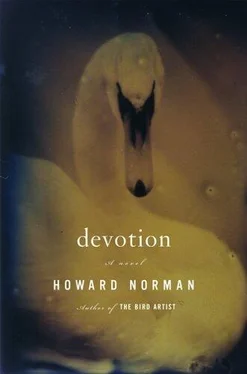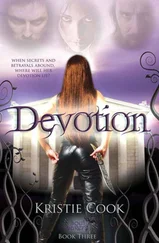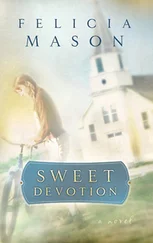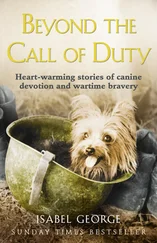David laughed hard, trying to picture it. “Come on up to the house,” William said. “I’ve got something to show you.”
Maggie, David and William sat at the table. Letters were stacked up, all handwritten on official-looking stationery. “These are letters I’ve received from a very admirable man,” William said. He was addressing David. Maggie knew all about the letters. “His name is Reginald Aston. Mr. Aston is no less than the Queen of England’s official swankeeper. In the greater London area alone — and I might have these statistics wrong — Mr. Aston has over two thousand swans under his jurisdiction. Naturally the population shifts — boating accidents, natural deaths.”
“Tell David about the kidnapping, Pop.”
“Two thugs kidnapped a swan along the Thames. It was witnessed by passersby, yet the crime remained unsolved. Why someone would do that beats me. You lived in London, David. Any swan you saw was in Mr. Aston’s keep.”
“My dad has something to ask us,” Maggie said, knowing if she didn’t get to the point, William might read Mr. Aston’s letters out loud and David would be too polite to say anything.
“Right. Well, I’ve got an appointment with Mr. Aston, long-sought. It’s on August nineteenth at noon. Maggie tells me you’re flying Halifax to Boston, then on to London, on August sixth. I thought I might get a seat on the same airplane, see London as a tourist while you two go off to Islay. I’d visit the sights. I’d meet my August nineteenth meeting with Mr. Aston. I might even stay on another week.”
“What was the concern, William?” David asked.
“You might not want a father-in-law along, the start of a honeymoon.”
“Maggie has to fly back to work in Halifax when our ten days on Islay are over,” David said. “I have loose ends to take care of. I’ve already closed down my flat, but I have to close my bank account. Things like that. So, if you are staying in London, maybe we could have dinner. Or just take a walk in one of the parks. I might suggest Regent’s Park.”
“From the look on your face, Margaret, I see you’re in agreement.”
“There, now that’s over with,” Maggie said. “Let’s take a swim.”
“You two go on,” William said. “I swam at five this morning.”
The wedding took place on the lawn at 4 P.M. There was a merciful breeze. The swans were on the pond. The ceremony was brief. Three musicians from the Dalhousie Ensemble, including Marianne Brockman, played pieces Maggie had chosen: selections from Bach, Haydn, Antonio Caldara. There were twenty-three people in all. Toby Knox represented Parrsboro. Frannie Dunsmore came down from St. John’s, Newfoundland, with her husband, Duncan McGary, and their daughters, Mary and Ileene. The lemon wedding cake was a three-tiered architectural wonder. Dory had asked Ezra Murry, a mechanic and woodcarver, to whittle a bride and groom; he could expertly paint on a gown and tuxedo, plus the faces. Ezra replied that he could easily carve a likeness of Maggie as a bride, but declined the request, since he’d never met David. Dory got this message to Maggie, who drove David to Ezra’s house in Lower Economy, where Ezra got a good look at him. Maggie and David stayed fifteen minutes. The wooden bride and groom turned out splendidly. David had picked up the cake; he and William carried it in from Maggie’s car as if delivering high explosives, set it on the kitchen counter.
William borrowed a French country table, which he set parallel to the one already in the dining room. Maggie set out the Tecoskys’ best china and silverware. She had asked permission by phone, after inviting them to the wedding. “We’d love to be there,” Stefania said, “but we’re not up to traveling just now.” Maggie and David washed every spoon, fork, knife, wine glass, plate.
An hour after the ceremony, the meal was served. The ensemble’s musicians played. William gave a toast, which he’d written out: “I’m as proud and happy as can be to see this marriage take place.” That was it; he held up his glass and everyone at the tables held up theirs. When dishes were cleared, out came the cake. David took ten photographs of it. Marianne Brockman took a photograph of Maggie and David cutting the cake.
Off at the far end of the living room, Reverend Teachout remarked, “They make a nice couple, don’t they? From opposite sides of Canada, isn’t that something? Course, they rehearsed their wedding night months before the wedding. But a lot of young people do these days, don’t they? I’ve heard some even rehearse their wedding night and don’t eventually get married. Margaret and David, there, had wedding vows almost shorter than the kiss that sealed the promise.” He seemed to marvel at how passion sometimes abbreviates what precedes it, in this case his few platitudes about life and love, though quite well spoken, everyone thought. “Ah, well,” he said taking a bite of cake, “I have officiated at hundreds of weddings, and I always think it redundant to say ‘You may now kiss the bride.’ Because the groom in question doesn’t usually need to be instructed so. Bride neither.”
The guests all left by ten o’clock. The musicians had arrived in two separate cars from Halifax. Marianne Brockman, who had drunk a lot of champagne, told Maggie and David she thought she’d played quite well, especially the Haydn; Maggie and David cracked up, remembering their night hearing Miss Brockman through the wall of their hotel room. Miss Brockman had to be assisted to the car by the other members of the ensemble. She was placed in the back seat, her cello in the front seat.
Maggie and David spent their wedding night in the guesthouse. William set two new fans in the bedroom; they were already on. “Thoughtful of William,” David said as Maggie and he were stepping out of their wedding clothes.
“And knowing—” she said.
“It’s all right. It’s fine. Besides”—they were kissing deeply—“the need right now is, don’t give anything a second thought.”
They didn’t sleep, and at 5:30 A.M., mist over the pond, they went skinny-dipping. The swans hardly bothered waking.
WHEN THE Fasten Seatbelt signs blinkered out twenty minutes from Heathrow, William leaned across the aisle, said to Maggie, “Marrying your mother — rest in peace. Your birth. Your wedding. Those occasions notwithstanding. I’ve looked forward to meeting Mr. Aston more than anything else. I’m allowed just two hours of his time. But lord’s sake, I’ve got a list of questions a mile long.”
“I’m happy for you, Pop,” Maggie said. “Things will turn out well.”
“And I’m happy for you,” he said. He looked at David, asleep in his window seat. “Happy for David, too, that he married so well.”
In London, Maggie and David got situated in their room at Durrants Hotel; William went directly to his bed-and-breakfast near the Kensington Market. First thing, he left a message with Reginald Aston’s secretary, confirming the appointment.
The next morning William slept late, then set forth being a tourist. His happiness at wandering the streets of London was tempered by his wife’s absence. They’d not traveled much together. Still, over the next ten days he found it satisfying to jettison his habitual frugality and splurge, going to restaurants, the theater (seeing two plays by Harold Pinter, commenting during the one Islay-to-London call from Maggie, “His characters all talk pared down, like Newfoundlanders. Wonderful stuff”) and museums. He spent an afternoon in Regent’s Park. He visited Churchill’s underground war headquarters. He didn’t know a soul in London; his days and evenings were solitary; he enjoyed himself immensely.
The newlyweds had hired a car to take them to the early afternoon ferry from the Caledonian MacBrayne terminal at Kennacraig, on the Argyll mainland, which docked at Port Askaig on Islay. Isador Tecosky met them with his car and drove them to Port Charlotte, where they checked in to the Port Charlotte Hotel. Beautiful sea view out onto Loch Indaal. They spent the next afternoon with Stefania and Isador at their house, in the village of Eilean Dubh. It was of course the first time David had met them. That night, sitting on the rim of the bathtub in their hotel room as the bath filled, Maggie said to David, sitting cross-legged on the floor, “They’ve never been not kind. Never not, and I must’ve tested their patience, being a stubborn kid. I caught myself staring at them today, sort of a trance of remembering. I didn’t even offer to help with coffee. I haven’t seen them in quite a while. Especially Stefania, but both are slowed down so much, those creaky old bones. Stefania forgets things left and right. And I do not like Izzy’s cough, either. But they are dear, dear people. The dearest to me. They gave my mom and dad a life in so many ways.”
Читать дальше












